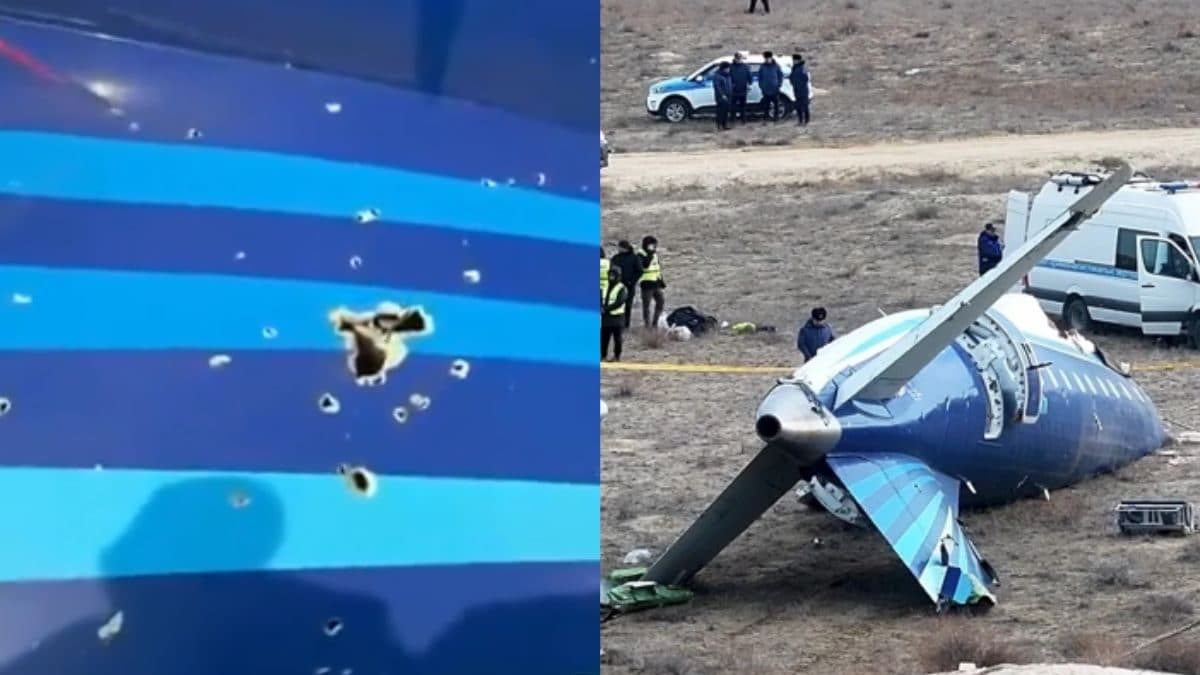Three years into Russia's invasion, Ukraine unveils a bold Victory Plan, aiming for NATO membership, advanced weaponry, and strategic deterrence to secure sovereignty and reshape global alliances.

Tension has increased in Ukraine over Donald Trump's victory amid the war with Russia. (AFP Photo)
Nearly three years into Russia’s full-scale invasion of Ukraine, President Volodymyr Zelensky has unveiled a comprehensive Victory Plan that aims not only to end the war but to redefine Ukraine’s position on the global stage. With calls for NATO membership, advanced weaponry, and a robust strategic deterrent, the plan has garnered both international support and scepticism.
NATO Membership: A Cornerstone of Sovereignty
At the heart of Zelensky’s strategy is Ukraine’s long-standing ambition to join NATO. This goal, Zelensky argues, is the only way to ensure Ukraine’s sovereignty and territorial integrity in the face of ongoing Russian aggression.
“There can't be a NATO invitation for some parts of Ukrainian territory. It would mean an automatic recognition that all the other territories are not only in danger but are not part of Ukraine,” Zelensky said, emphasising the need for a unified invitation that covers all of Ukraine.
Ukraine’s aspirations for NATO membership date back to the early 2000s, intensifying after Russia’s annexation of Crimea in 2014. However, the path remains fraught with challenges. Member states like Hungary and Turkey have expressed reservations, citing concerns about provoking Russia and the complexities of integrating a nation at war.
Strengthening Military Capabilities
Beyond NATO membership, Zelensky’s plan underscores the critical role of military strength. He has called for advanced weaponry, including long-range missiles, to strike Russian targets deep behind enemy lines.
“We are not trading Ukraine's sovereignty, security, or future. We won't relinquish Ukraine's rights to its entire territory,” Zelensky declared, urging the international community to stand united with Ukraine.
The U.S. has been a key ally in this regard, providing over $43 billion in military aid since the invasion began. This includes advanced systems such as Patriot air defense systems, HIMARS rocket launchers, and F-16 fighter jets, significantly bolstering Ukraine’s defensive and offensive capabilities. The inclusion of long-range ATACMS missiles and cluster munitions marks a significant escalation in U.S. support.
The Budapest Memorandum and Strategic Deterrence
Zelensky’s plan also addresses the need for a robust deterrent to prevent future aggression. While Ukraine remains committed to its non-nuclear status, discussions about creating advanced conventional weapons and integrated defense systems have emerged.
This aspect ties into the 1994 Budapest Memorandum, under which Ukraine gave up its nuclear arsenal in exchange for security assurances from Russia, the United States, and the United Kingdom. These assurances included respect for Ukraine’s sovereignty and borders, commitments that Russia’s actions in Crimea and the current invasion have blatantly violated.
“This document is a true reminder that long-term security decisions for Ukraine, like this one, are inappropriate and unacceptable,” said Ukrainian Foreign Minister Andrii Sybiha, criticising the memorandum’s failure to ensure security.
Reactions: Support and Scepticism
NATO Secretary General Mark Rutte highlighted the critical juncture Ukraine faces, noting, “Ukraine is entering another crucial winter, and Russia’s aggression shows no sign of abating. The stronger our military support to Ukraine is now, the stronger their hand will be at the negotiating table.”
However, critics argue that providing advanced weaponry risks escalating the conflict and provoking Russia further. Questions also loom over the sustainability of international aid, with some U.S. lawmakers and citizens questioning the financial and strategic costs.
Trump’s Pledge and Russia’s Stance
As the 2024 U.S. elections approach, former President Donald Trump has pledged to end the conflict within 24 hours of taking office, though details of his plan remain unclear. Russia’s Ambassador to the United Nations, Gennady Gatilov, dismissed Trump’s claims, stating, “Let him try, but we are realistic people. Of course, we understand that this will never happen.”
A Vision for Resilience
Zelensky remains steadfast in his resolve, urging Ukraine and its allies to focus on resilience. “We must work daily, together with our nations, for the benefit of Ukraine’s resilience. It is impossible to win this battle separately,” he stated.
While the Victory Plan offers a bold vision for Ukraine’s future, its implementation faces immense challenges. From securing NATO membership to sustaining international military aid and addressing the limitations of past agreements like the Budapest Memorandum, Ukraine’s path to peace and sovereignty is far from straightforward.
As the world watches, one thing is clear: Ukraine’s fight is not just for its own survival but for the principles of sovereignty and international law. Whether Zelensky’s Victory Plan succeeds will shape the course of global geopolitics for years to come.
Published By:
indiatodayglobal
Published On:
Dec 6, 2024

 2 weeks ago
2 weeks ago

















